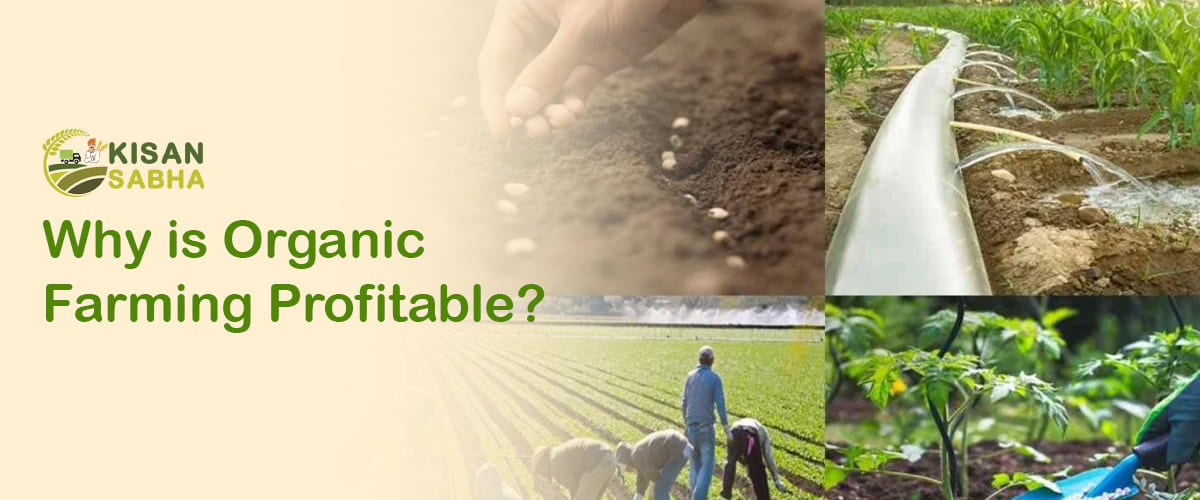Organic farming is a vital subset of agriculture that emphasizes sustainable and all-natural methods for growing food and raising livestock. As consumers grow increasingly aware of their dietary choices and the environmental impacts of farming, interest in organic practices has surged in recent years. Beyond financial benefits, organic farming offers significant advantages for both the environment and human health.
Organic is the only Option that provides Meaningful Health Benefits
The conventional food system is the reason for numerous issues, including toxic exposures, birth defects, learning disabilities, obesity, and water pollution. Additionally, it often leads to the unacceptable suffering of farm animals.

While many labels claim vague and unverified benefits, certified organic stands out by delivering what consumers truly need: nutritious food produced using methods that minimize toxins while enhancing soil and water quality.
A vibrant organic food sector not only meets the needs of consumers but also drives essential changes that can benefit all of agriculture. This transformation positively impacts everyone who depends on American farmers for their daily meals, ensuring healthier options and a more sustainable future.
Limit your Exposure to Potentially Harmful Synthetic Pesticides
Conventional farmers often use between 2-12+ synthetic pesticides on their crops. On average, three to four pesticide residues are seen in a serving of conventionally grown leafy greens, peppers, tree fruits, berries, and grapes. These pesticide residues are concerning, as they can lead to subtle changes in a child’s development. Additionally, they have been reason to various health issues, including ADHD, autism, obesity, and some types of cancer.
Improve the Nutritional Value of Your Food
Organic crops are cultivated in soil that is both healthy and biologically active. While organic farming may yield less produce per acre and take longer to mature compared to conventional methods, the benefits are significant. Plants nurtured in organic soil produce crops with higher concentrations of vital antioxidants, minerals, and vitamins. This means that consumers can enjoy more nutritious food when they opt for organic options.
Provide Farm Animals with an Appropriate Amount of Regard
In conventional farming, many animals are kept in crowded, stressful environments which compromise their health. This often leads to increased drug dependence and denies animals the opportunity to exhibit natural behaviors. In contrast, the National Organic Program (NOP) regulations mandate that organically raised animals must have outdoor access, including pastureland, and adequate space to behave naturally. This approach enhances animal welfare and promotes better health outcomes.
Also Read:- Benefits of Organic Farming for Farmers, Consumers, Buyers, and Traders
Foster Rural Landscape Beauty and Biodiversity
Biodiversity is essential not only for the environment but also for organic farmers. Experienced organic farmers understand that the best way to improve soil health is through the integration of multiple crops and livestock. This method maximizes the benefits of annual rainfall and sunlight. By promoting biodiversity, organic farming creates a thriving ecosystem that supports both agricultural productivity and environmental health.
Keep the Soil Healthy

Healthy soil is the foundation of any successful organic farm. Numerous studies conducted over the past 50 years have shown that organic management practices, such as crop rotation, significantly enhance soil quality. These practices restore essential organic matter and nitrogen, while also sequestering carbon to combat global warming. Healthy soil contributes to sustainable farming and improved crop yields over time.
More Potent Flavors are Delivered by Organic Food
Research indicates that organic fruits and vegetables generally contain higher nutrient levels, which enhance flavor. They also tend to have lower water and sugar content, resulting in more intense and complex flavors. Furthermore, organic foods do not contain preservatives or artificial colors, allowing consumers to enjoy a more authentic taste. This makes organic produce not only healthier but also more flavorful.
Provide Farmworkers and Rural Neighbors with Healthier Workplaces
Farming is one of the riskiest occupations, second only to mining. Many individuals working on farms or living nearby face health risks from exposure to toxic pesticides and harsh fertilizers. However, organic farmers avoid using these high-risk chemical substances, which significantly reduces health hazards for their employees and rural communities. This commitment to safety fosters healthier work environments for everyone involved.
Conclusion
In Conclusion, organic farming is not just beneficial for the environment and public health; it can also be profitable. The financial viability of organic farming is influenced by several factors, including high consumer demand, premium pricing, reduced input costs, and access to niche markets. Government support and programs also play a significant role, along with improved soil health and long-term sustainability. By prioritizing organic practices, farmers can create a healthier planet and enjoy economic success.





